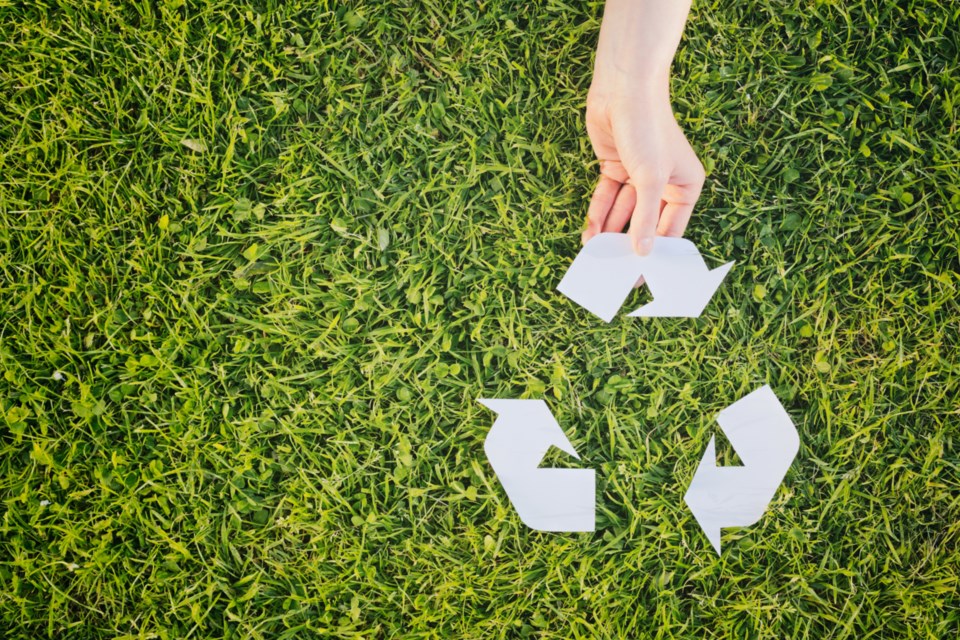Every day, societies across the world generate staggering amounts of waste, straining the Earth’s ecosystems to a breaking point. Given this context, the question arises: why should we recycle? Here, we delve into the crucial reasons why we should recycle while also considering the counter-arguments that sometimes make it seem like recycling might not be worth the effort.
Understanding the Essence of Recycling
To understand the reasons why we should recycle, we first need to comprehend what recycling is. In essence, recycling involves the transformation of waste materials into reusable resources. This process helps reduce the environmental burden and promotes sustainability by decreasing the need for extracting, refining, and processing raw materials.
What Can You Recycle?
Recycling is a vital practice for conserving resources and reducing waste. But it’s crucial to understand what can be recycled to maximize its benefits.
A wide range of materials can be recycled, and these largely fall into a few main categories:
- Paper and Cardboard: Most paper products, including newspapers, magazines, envelopes, phone books, and cardboard boxes, can be recycled. However, items like paper towels or tissues, often contaminated with food or bodily fluids, should be composted instead.
- Plastic: Many plastic products can be recycled, including bottles, jars, jugs, and containers. You can identify recyclable plastics by the recycling symbols and numbers on the bottom, though the ability to recycle these can depend on local services. Remember, it’s important to rinse and dry plastic items before recycling.
- Metal: Aluminum (like beverage cans) and steel products are typically recyclable. Other metals, such as copper, brass, and stainless steel, are also recyclable but are rarely found in household waste.
- Glass: Glass containers, such as jars and bottles, are recyclable. Yet, certain types of glass, like windows, ovenware, Pyrex, crystal, and light bulbs, have different melting points and should not be mixed with container glass.
- Electronics: Old electronics, known as e-waste, can often be recycled at specialized facilities or through certain retail programs.
By understanding what can be recycled, you can make more informed decisions, contribute effectively to waste reduction and help ensure a more sustainable future.
What Are 5 Ways to Recycle?
Recycling isn’t limited to sorting paper, plastics, and glass for weekly pickup at the curb. There are various creative and practical ways to incorporate recycling into our everyday life:
- Composting: Convert your kitchen scraps, such as vegetable peelings, used coffee grounds, and eggshells, into a nutrient-dense compost for enriching your garden soil. Composting is an excellent way to recycle organic matter, enhancing soil health and reducing reliance on chemical fertilizers.
- Upcycling: Upcycling, or creative reuse, involves transforming unwanted items into new products of higher value. For instance, old ladders can become bookshelves, wine bottles can be turned into candle holders, and an old t-shirt can be made into a tote bag.
- Electronics Recycling: Dispose of electronic waste, or e-waste, at designated recycling facilities or drop-off points. Many electronic manufacturers and retailers offer take-back programs, making it easier to recycle these materials safely.
- Donate or Sell: If items like clothing, furniture, or appliances are still in good condition but no longer needed, consider donating or selling them. This way, these items get a new lease on life and stay out of landfills.
- Recycled Art: Get creative and use recyclable materials to create artwork. It’s a fun way to recycle, especially for kids, and it also raises awareness about recycling.
By implementing these strategies, you can take recycling beyond the bin and make it a more integrated part of your lifestyle.
The Environmental Argument: Why Should We Recycle
The foremost reason why we should recycle lies in the environmental benefits it offers. When we recycle, we help reduce the amount of waste in landfills and incinerators. By doing so, we limit the emission of harmful greenhouse gases that contribute to climate change. Moreover, recycling conserves natural resources such as timber, water, and minerals, thus helping maintain the balance in our ecosystem.
Recycling also saves energy. Producing new goods from raw materials consumes significantly more energy than making products from recycled materials. For example, manufacturing aluminum cans from old ones uses 95% less energy than producing them from bauxite ore.
The Economic Perspective: Benefits Beyond the Environment
Another persuasive reason why we should recycle is the economic advantages it presents. Recycling creates jobs in the processing and manufacturing sectors and contributes significantly to the economy. It’s a dynamic industry that can stimulate local economies, reduce expenditure on raw materials, and open new markets for recycled goods.
Moreover, recycling can contribute to financial savings for consumers and businesses. Many communities have pay-as-you-throw programs, where the less waste you generate, the less you pay. Thus, the more you recycle, the less trash you create, and the more money you save.
The Societal Impact: Promoting a Culture of Sustainability
At a societal level, recycling plays a crucial role in fostering a culture of sustainability. It encourages us to be more conscious about our consumption patterns, waste generation, and overall ecological footprint. Additionally, it helps educate the younger generation about the importance of environmental responsibility, empowering them to make a difference.
The Counterpoint: Why We Should Not Recycle
While the reasons why we should recycle are compelling, certain arguments suggest that recycling might not be as beneficial as it seems. Some critics point out that recycling can be expensive, particularly in rural or remote areas where the infrastructure for collection and processing may not be readily available. Moreover, not all materials are recyclable, and some, like plastic, lose their quality after a few recycling cycles.
Yet, it’s crucial to remember that these challenges don’t negate the need for recycling. Instead, they highlight the areas we need to improve to make recycling more efficient and accessible.
The Solution: Improving and Adapting Recycling Systems
We need to continuously adapt and improve our recycling systems to address the downsides. Technology innovation, policy reform, and public education can all play a significant role.
Investing in recycling technologies can improve the process’s efficiency and make it more cost-effective. Policy reforms can incentivize recycling and the use of recycled materials, while public education can increase understanding of recycling’s importance and how to do it effectively.
The Bottom Line: The Reason Why We Should Recycle
In the end, the reason why we should recycle is straightforward: to secure a sustainable future for generations to come. Although recycling is not the silver bullet to our waste problems, it is a critical component of comprehensive waste management strategies.
While challenges exist, they should not deter us from the path of recycling. Instead, they should drive us to innovate and evolve our approaches to recycling, making it an integral part of our daily lives. By doing so, we are preserving our resources and shaping a more sustainable and economically viable world for everyone.

